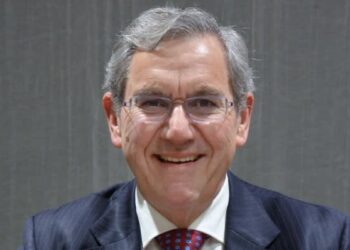The Division 296 bill may not be re-introduced in the first sitting week, but that doesn’t mean the spectre of unrealised gains was entirely absent, with the opposition peppering the Prime Minister, Treasurer and Assistant Treasurer with questions on Wednesday.
The Coalition threw a grab bag of Division 296 questions at the Labor government during the first question time of the new Parliament, querying everything from the impact of the tax on farmers to whether the PM would rule out taxing unrealised gains in other structures and if the Treasurer stands by previous estimates on the number of Australians set to be impacted.
However, Prime Minister Albanese highlighted the apparent futility of the opposition’s super tax focus.
Responding to deputy leader Ted O’Brien’s question on whether the government would go any further with the taxation of unrealised gains than the proposed super tax, Prime Minister Albanese offered a “big tip”, telling the shadow treasurer that the “time to run a scare campaign is just before an election, not after one”.
While the PM didn’t directly answer the question or unequivocally rule out imposing a similar tax on assets held in different structures, the response is a clear indication Labor doesn’t view the public discourse on Division 296 as damaging.
Taking a different line of attack, returned member for Goldstein Tim Wilson probed Treasurer Jim Chalmers on the number of Australians that would be hit with a bill thanks to “Labor’s unfair super tax on unrealised capital gains”, asking if he stood by initial estimates of 80,000 people being impacted.
“I didn’t describe it the way that the honourable member has said. That’s the first point,” Chalmers said of the estimate he gave in February 2023.
“Second point is that when we announced the policy, the expectation was that there would be about 0.5 per cent of people in the superannuation system impacted by what is a very modest change in terms of the impact on individuals.”
FSC modelling has put the number of currently working Australians who would be captured in the $3 million super tax under Labor’s proposed settings at around 500,000, assuming there is no indexation.
Sticking to the message he has been rolling out since the election victory in May, the Treasurer stressed even those being slugged with the extra tax would still receive “very generous tax concessions in superannuation, but it will be slightly less generous”.
“For example, someone with $3 million, instead of getting a $14,000 tax break, they’ll get a $13,000 tax break for their investment. So, it continues to be concessional,” he said.
Farmers should be diversified
Division 296 questions were not, however, limited to the Liberal cohort of the Coalition, with Nationals leader David Littleproud calling for new Assistant Treasurer Daniel Mulino to “clarify” how the unrealised gains tax would operate for a farmer who holds their farm in a self-managed super fund (SMSF) but has had a “failed season with no income”.
Reiterating another core message that Labor has pushed in relation to Division 296, Mulino stressed that superannuation exists in Australia for the purpose of “providing dignity and certainty in retirement”.
“It is going to be a reform that applies only to balances of $3 million or more, balances which are well above what is needed for people to achieve dignity and certainty in retirement,” Mulino said.
Answering Littleproud’s question more directly, the Financial Services Minister said farmers have the same obligations for their SMSFs as every other super fund.
“It is important that all superannuation funds have a design so as to take account of diversification requirements and liquidity requirements. That is an obligation under the current law on all superannuation funds. So, that is something very important to bear in mind,” Mulino said.
“It is important also to bear in mind that if an SMSF has a farm or a business within the fund, that it should be receiving commercial arm’s length payment from that business or from that farm.”
However, the Nationals had more farm-related questions for Mulino, with the party’s deputy leader, Kevin Hogan, seeking a number for how many farmers and small and family businesses the tax would impact.
“What I can confirm is that the total number of members who will be affected, as the Treasurer has confirmed, is roughly in the order of 80,000,” Mulino said.
“I think when it comes to drilling down into smaller categories than that, it is difficult to ascribe a particular number to a particular type of business, but what I can say is the overall number of funds affected by this is in the order of half a per cent across both defined contribution and defined benefit across the entire category of all members, and that is a very small fraction.”
According to Australian National University research released earlier this month, there are around 2,368 farmers that fall under the large superannuation balance holders cohort, making up just 2.7 per cent of the group.
Ultimately, the Coalition throwing out a greatest hits of criticisms during question time isn’t going to keep the $3 million super tax from being legislated.
That’s all down to how willing the Greens are to negotiate in the Senate.




Isn’t dignity and respect a personal thing relative to what one has previously earnt? If you generated an income of $200k to say $300k pa , how does $3m at say a 5% drawing give you that security and stability of generating a similar income in retirement? Capital will have to run down so where is that dignity and respect now? Even more concerning is the Greens logic that $2million is sufficient to provide a comfortable retirement income. How? It simply shows that members of Parliament have no relevance or touch at all and simply froth the Party rhetoric. Please show us some of that so called respect and scrap a bad policy now!
“It is important also to bear in mind that if an SMSF has a farm or a business within the fund, that it should be receiving commercial arm’s length payment from that business or from that farm.”
Yes.. that commercial arms length income pays their pension from super… Its not designed to simple pay mythical gains not yet realised.
The voters, whose votes mattered, did not care about Div 296. Instead, they were lulled into voting for Labor by Alban’s optical illusion of being pro-females in order to distance himself from that dope, Dutts.
(Alban’s latest stunt is to have a female bodyguard… whilst walking to Parliament House with his son and dog)
Taking 20% off HELP is a rubbish use of tax payer dollars
More flippant off hand comments from Chalmers et al. Why is extra taxation always the go to position?Why not some accountability for wastage of public money by every layer of Government. E.g NDIS rorting, bloated public service numbers, $900m to France for not proceeding with submarines etc, etc.
Exactly…
And the farmers complaining is a weak argument. It is true that they should be considering the diversification and liquidity.
What we should be arguing is where else in the tax system will taxing unrealised gains manifest itself.
So you fell for the diversification and liquidity argument and that is that – well done. Imaging another scenario – could you?
So, you invest in a stock and it is a real success, goes up massively in value? Sure, sell some and realise the gain just to pay the tax, but what if it was a block of land etc, say a truck yard and suddenly after 20 years it is worth more than you expected because of rezoning etc. Taxing unrealised Gains is probably the best way to prevent the building of wealth. Remember, we already have limits on the amounts of money that can be contributed to Super, and limits on the amount that can be transferred to Allocated Pensions. So, if $3M is to be another limit, and not indexed, why are SGC rates going to 14%? Surely, this discussion now needs to be had. The younger generations are being told that 14% of their gross earnings must go to retirement, and the product providers can charge them a fee for the provision of advice it will typically be delivering to retiring members. How on earth are they meant to save for a home?